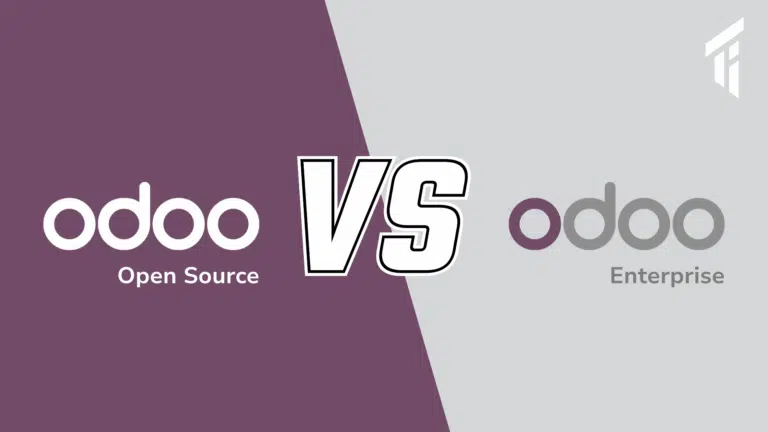What is a Pre-revenue startup?
Pre-revenue startups often have little or no working capital and no sales. They are typically pre-product/pre-market firms that could someday evolve into actual companies. So, they are just concepts still in the formative stages.
Need of an ERP for startups in the Pre-revenue stage
Startups concentrate on realizing their objectives and vision: Many new processes and technologies are developed as your business grows. But typically, they are introduced haphazardly and without a plan, resulting in many incompatible little tools. As a result, the overview of the money, procedures, and instruments gradually disappears, and your productivity declines.
An ERP for Startups can help: It integrates all your company’s business segments’ interfaces into a single system. Keeping everything under control using separate tools or Excel spreadsheets becomes more and more challenging to handle with growing orders and increasing complexity as the process. Thus, the parameters become more and more intertwined. This applies to everything from purchasing to sales, personnel planning to time recording, process monitoring and accounting to inventory and warehouse management. On the other hand, an ERP system provides a simple, out-of-the-box solution for all of these issues and many more!
Small business owners can wholly focus on the core task of their business: The ERP takes care of the arduous strain of administrative and business side activities for you!

When is the right time to adapt?
Finding the ideal moment to implement an ERP system is challenging because the consequences of doing so only become apparent after it is too late. As a general guideline, you should consider the majority of startups and wait at least until you have established product-market fit and begin before your sales begin to increase rapidly.
Consider your company’s operational requirements if:
- Your company can no longer perform efficiently or effectively without the help of a unified organizational-wide system, ERP software should be adopted.
- You receive more than 50 invoices every month.
- You conduct more than 150 consumer transactions per month.
- You have your own manufacturing or manage the manufacturing of others,
- You have over 100 active subscribers.
If you are still unsure, book a free consultation with us to determine whether you require an ERP system.
What are the benefits of an ERP for startups?
Strong business expansion frequently results in a sudden exponential workload and process complexity rise. It’s time for an ERP system to maintain its capacity for swift and flexible action at this point, at the very least. If an ERP has already been established, there is no need to look for and combine the many departmental platforms to feed them into the ERP tool during this crucial period. The complete production chain, from ordering to customer service, is already integrated into the system, so one only needs to make minor adjustments to have the ERP adapt all of the procedures. A chance to gain valuable time.
Additionally, you always have a centrally located overview of manufacturing and the movement of resources and commodities. An ERP system independently confirms that all requirements for efficient value creation are satisfied and notifies the controller if they are not. Every employee can access the most recent real-time data, which they may utilize to assess, gauge, and improve ongoing processes. It is even possible to create automated interfaces for measuring and production equipment. The effectiveness of your business can be increased indefinitely in this way!
You do not need to be concerned about your processes if your business expands even more quickly than you could anticipate or if you are contemplating a step toward internationalization. ERP systems enable you to quickly add complexity without compromising usability. The ERP handles currency conversions and tax adjustments for overseas orders, so you don’t have to! The ERP informs you, so you no longer need to confirm in advance whether the contacts in other time zones are now available!
Do you need an ERP Implementation partner?
You are in charge of introducing an ERP tool once and perhaps integrating extensions. However, there are several benefits to leaving the technical assistance in the hands of partners already familiar with the platform. You have a full plate managing these difficulties because your company continuously faces new ones. Your IT consultant, who may already be familiar with solutions from past projects, will next be tasked with figuring out how technically to incorporate this into your ERP.
IT consultancy serves as a translator between several corporate divisions
From the executive level to the IT division to the user. IT consultants give you personalized business recommendations regarding the CRM, finance, and ERP systems most appropriate for your present focus. To do this, they mix business goals with IT deployment while also analyzing your system’s current state and difficulties.
The ready-made solutions with the required know-how are already accessible from your IT consultant and save you time and money, especially if you want to automate customer communication, for example, by constructing a website or running an online store or an online helpdesk.
Automation of placing orders with service providers, planning machine maintenance, serial manufacturing, or logistics all fall under the category of customizing current solutions, where your consultant can relieve you of much labour.
Finally, a consultant is an experienced user and developer of ERP software who not only incorporates the system and makes modifications and adjustments but also trains your employees, provides advice and tips for easier operation and is accessible to you as an expert contact person in the first instance for all questions.
The infrastructure management we provide is effective and reliable. Let’s talk!



